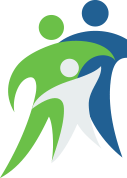Lakeland Behavioral Health System helps adolescents and teens struggling with mental health disorders build a strong foundation for long-term recovery.
Our Structured, Safe Environment
Our residential program for boys at Lakeland’s behavioral health clinic in Missouri is designed to meet the needs of a variety of family, social, behavioral, educational, and mental health issues. We operate as a structured and safe milieu with the support of the treatment team and well-trained staff that work daily to model and teach appropriate behaviors to help improve the well-being of our boys. We adhere to a tight daily schedule and work toward completion of a phase system throughout their stay. Our caseworkers and therapists at Lakeland’s treatment clinic are regularly available and have close relationships with our young men. The support, time spent, words of encouragement, creative groups, ability to build relationships, and resources to reward positive behavior are ways we provide a therapeutic environment.
Clinical Treatment Team
Members of our clinical treatment team include:
- Psychiatrist
- Therapist
- Case Manager
- Nurse Manager
- Unit Manager
- Unit Nurse
- Charge Nurse
- Teacher
- Behavioral Health Technician
- Behavioral Health Technician II
Program Features
- Family Therapy
- Individual Therapy
- Group Therapy
- Recreational Therapy
- Wide variety of Social/Life Skills Groups
- Weekly treatment team meetings
- Off grounds outing opportunities
- Summer Basketball Clinic (proposal being reviewed currently)
- Skype capabilities for visitation (We are looking into this)
Groups Offered
Process/Goals Group: This group is run twice daily where each resident has the opportunity to process feelings and find out how many tokens they earned for the day. Tokens are based on behavior and will determine what privileges they will receive.
Exercise/Stretching Group: An interactive group where residents learn the basics of stretching through demonstration, repetition, and learn the importance of exercising daily.
Feelings Group: Residents will discuss and identify different types of feelings and learn how to be able to communicate those feelings in the appropriate manner.
Character Building Group: Staff will discuss the importance of building and maintaining a strong character and what that means on a day to day basis.
Journaling Group: A quiet time to reflect on the day and the opportunity to write in their personal journals.
Self Image Group: The emphasis of this group is placed on how residents view themselves and working toward viewing themselves in a more positive light.
Life/Social Skills Group: Residents are taught basic tools for post-treatment. Some of the topics may include: how to keep friends, filling out job applications, interviewing skills, and budgeting.
Cultural Diversity Group: Topics of discussion will revolve around different cultures, beliefs, and norms, in attempts to broaden their insight on the world around them.
Personal Reflection Group: Staff encourages the residents to reflect on their past, and then talk about what steps are necessary for improvement in the future.
Cooking Group: Residents learn basic cooking techniques while cooking their own meals.
Recreational Therapy (RT): Active therapy where residents are engaged in organized athletic activities.
Activity Therapy (AT): This group is led by a certified physical therapist or licensed therapist. Residents are engaged in a wide variety of topics.











